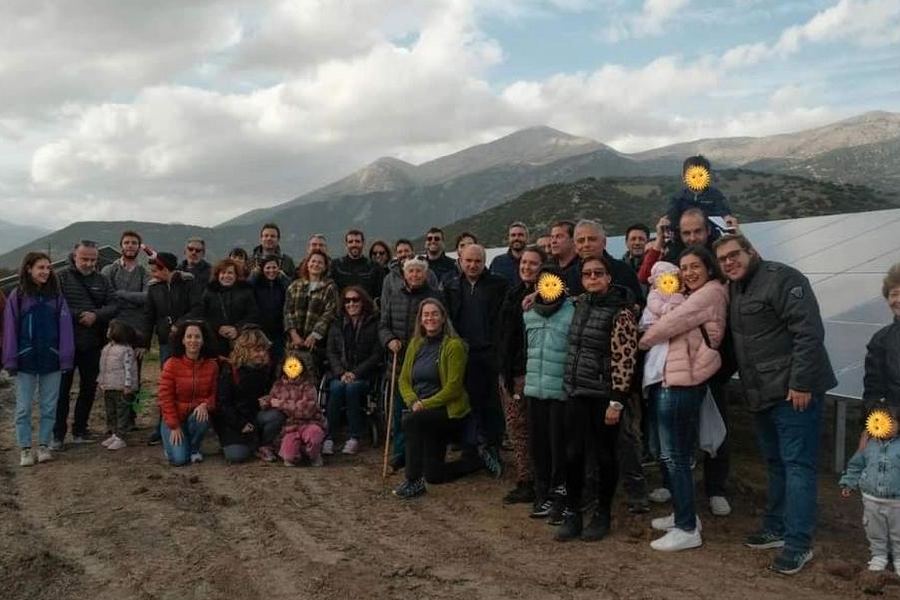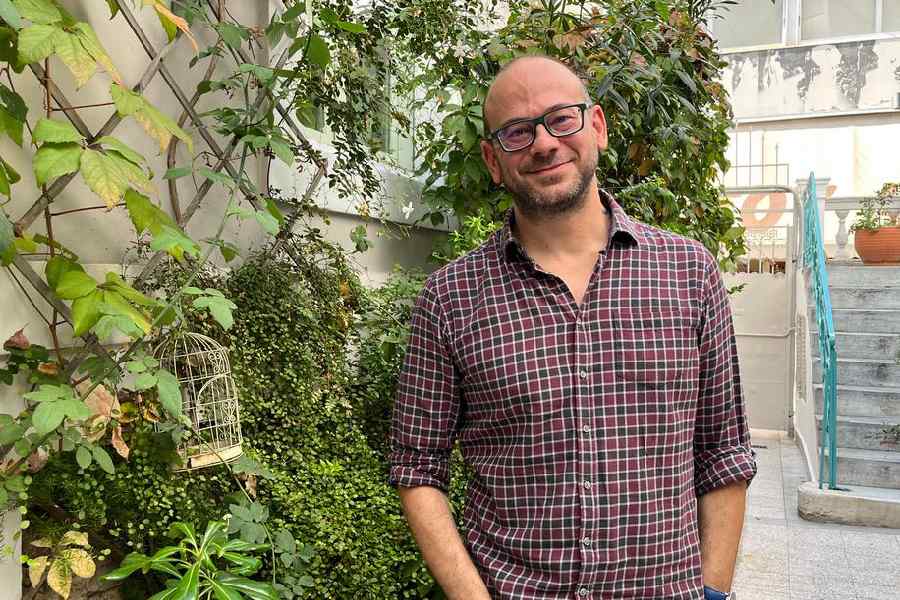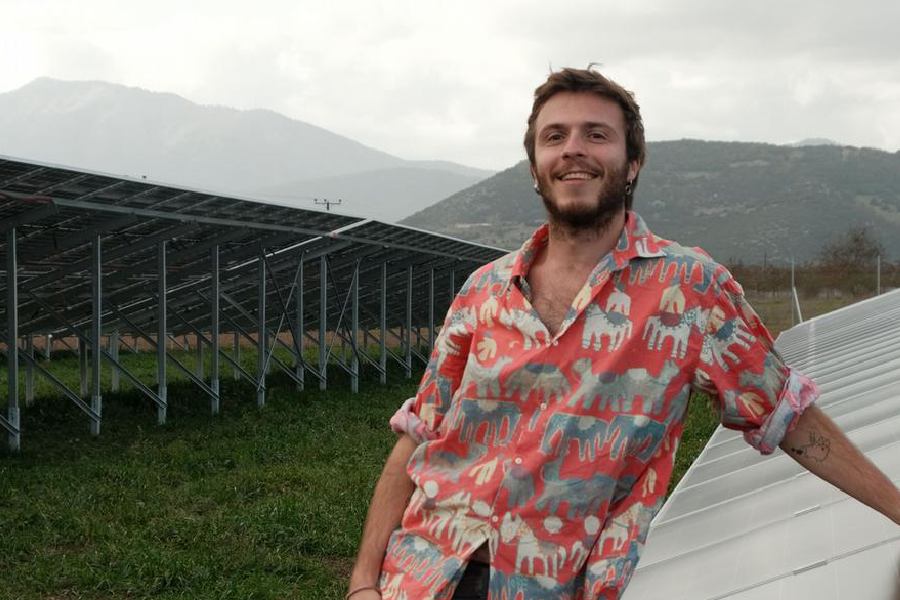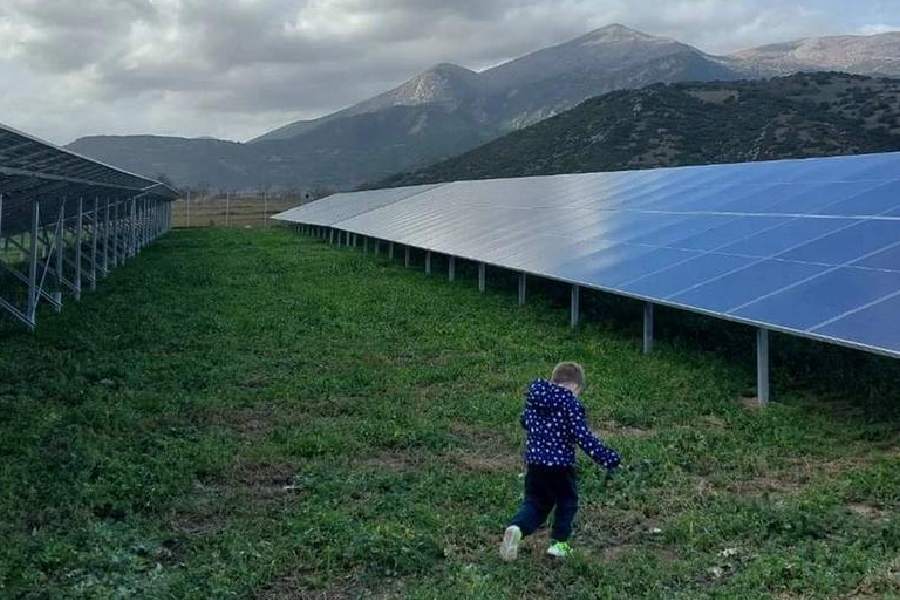Hyperion, the first democratic renewable-energy community in Athens, closely resembles one of Germany's progressive energy cooperatives. And the idea behind it is much the same as those in Germany, too, namely to create a democratic collective that produces renewable energy for the cooperative's members and for others in the greater community.
With 50% more solar irradiation per square meter than Germany, Greece has some of the highest potential for renewable energy in Europe. Indeed, the country is ranked one of the most attractive investment opportunities for renewable energy in the world.
Over the past decade, the share of renewable energy covering total energy consumption has almost doubled from 11% to 20% primarily as a result of wind and solar power generation. At the same time, Greece is phasing out coal and has decreased its greenhouse gas emissions by 43% since 2005.
But Hyperion and the energy cooperative movement across Greece are about more than just clean energy. "We're the best possible solution for the climate crisis," says Takis Grigoriou, one of Hyperion's co-founders. "We're taking things into our own hands, producing our own energy, democratizing the energy sector and speeding up the transition in a societally fair and participatory way."
Hyperion has pledged to donate a fixed share of its earnings to low-income households in Athens and a cultural center promoting African culture and a soup kitchen that feeds the poor near the capital.
Energy communities, says Chris Vrettos, another Hyperion founder, are a "solution at the intersection of the two major crises we're facing: ecological destruction and the democratic backslide." Each of Hyperion's 130 members have one vote in all of the co-op's decision-making processes.
Grigoriou, Vrettos and their fellow co-op members — a mishmash of professionals, people who run small businesses, and environmentalists from Athens — fought tooth-and-nail for three years to get Hyperion up and running.

Hyperion is a democratic collective that produces renewable energy for the co-op's members and others in the wider community Deutsche Welle
The project's mid-sized solar farm lies near Stymfalia, 80 km (50 miles) southwest of Athens near the Gulf of Corinth on land leased from a local farmer. The collective's €330,000 ($355,000) investment bought it 925 Chinese-made solar panels.
So expensive is energy in Greece — in 2022, Greece had the highest producer prices in the EU — Hyperion estimates that it can pay off its investment in just three to four years.
The electricity generated by the Hyperion farm is fed into the public grid and metered pro kilowatt hour. The members of the collective are credited this volume of electricity on their utility bills, each according to his or her investment, presumably for the next 25 years — the expected lifespan of the panels.
In Greece, energy community laws have been in force since 2018 and were updated in 2023. The amendments, which were made in the context of an EU directive, expanded the definition of an energy community, thus making it easier for cooperatives to generate renewable energy and reap its benefits. Moreover, the new law will facilitate broader involvement with DIY clean energy.
The original law enabled businesses to register as energy communities and function as small energy producers. More than a thousand private entrepreneurs have done so since 2018.
Hyperion members are keen to emphasize that they are an energy community, not a profit-seeking business. They have an online chat group, meetings and organized events where they talk about energy and the environment.
Cheap and clean energy is only part of a larger battle, say Hyperion's founders. Almost half of the building infrastructure in Greece ranks very low in energy efficiency. This means that buildings need more energy to warm or cool spaces.
The collective wants to provide energy efficiency services to its members and eventually to low-income households. "Really, it should be energy efficiency first and then renewable energy," says Aliki Korovessi, an energy conservation expert who belongs to Hyperion, "because you don't need to produce energy you don't use."
Greece has a high rate of energy poverty: One in five households is unable to heat sufficiently. Following Russia's invasion of Ukraine in February 2022, electricity prices skyrocketed — as did citizens' interest in producing their own energy.

Takis Grigoriou says that energy communities like Hyperion are 'democratizing the energy sector and speeding up the transition in a societally fair and participatory way' Deutsche Welle
In less than a year, from November 2022 to August 2023, both the power generated by energy communities and the number of applications for self-production tripled.
The electricity grid's limitations are one of the main problems facing energy communities in Greece. According to the think tank Green Tank, most applicants cannot be connected to the grid. New legislation provides that more grid space be reserved for the implementation of net-metering and virtual net-metering projects.
As optimistic as the Hyperion co-op is about its prospects, some of its members are worried about their calculations. So far, no energy community in Greece has seen its investment pay off.

Chris Vrettos, co-founder of Hyperion, says citizen energy is about much more than just power generation Deutsche Welle
The country's virtual net metering system means that the grid operator calculates the energy that a household or business uses and the energy the community produces with its renewables technology. The community is then paid the difference — at least in theory.
"This doesn't happen," says Vrettos. "We're not really sure where the process gets stuck. The utility claims that the distribution network operator (DSO) is not sending the proper data, while the DSO says that it has sent the data but that the supplier is not doing the metering."
This is a kink that Hyperion has to iron out if it expects other energy communities to follow its lead.











